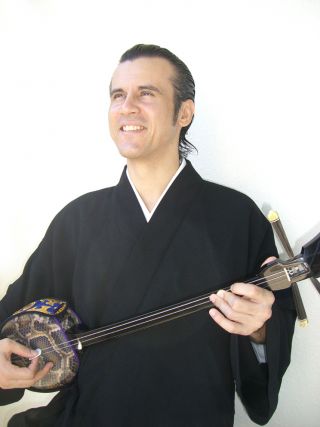My Music Is My Soul, My Language Is My ArmorPosted in Articles, Arts, Asian Diaspora, Autobiography, Identity Development/Psychology, Media Archive on 2015-09-14 00:48Z by Steven |
My Music Is My Soul, My Language Is My Armor
Psychology Today
2014-12-02
Stephen Murphy-Shigematsu, Ed.D.
Stanford University
Byron’s story of identity, healing, and empowerment
“One night at a pub I heard the sound of traditional Okinawan folk music, and it was like being hit in the head with a hammer. The impact was like a bolt of lightning! The song told the story of how in life there are things that each of us is born to do. I realized that I had been trying to erase the reality that I was born and raised here on this island. Suddenly listening to the music my hardened heart melted and I was freed.”
Byron has captivated me with his story since we first met in 1999, two mixed race guys, one an elder researcher, the other a young searcher in the throes of an identity quest. Born and raised in Okinawa by a native woman and her family, his face is marked by the genes of his father, an American whom he never met and whose name remains a mystery. With looks that branded him as an American, associating him with an occupying army and military bases and making him a scapegoat for hostility, Byron’s youthful life was full of strife and he had to fight to stay alive and maintain his dignity. He struggled to find himself, even venturing to Los Angeles to become an American rock star.
But when he had his great awakening he put away his electric guitar and devoted himself to the study of the sanshin, a 3-stringed snake skinned instrument. He set out on a road of discovery, immersing himself in the study of Okinawan traditional folk music of the islands. Music led him to language, as he wanted to understand the words of the songs he was singing. But years of neglect have taken their toll and it is a language no longer used in daily life, understood only by the middle aged, spoken only by the elderly. Byron felt anger at the society that did not value its own language, though he understood the history of incorporation into the Japanese nation, subsequent forced assimilation into Japanese language and culture, and self chosen accommodation, that had drastically reduced the use of the language. So he sought out elders and asked them to teach him…
Read the entire article here.


